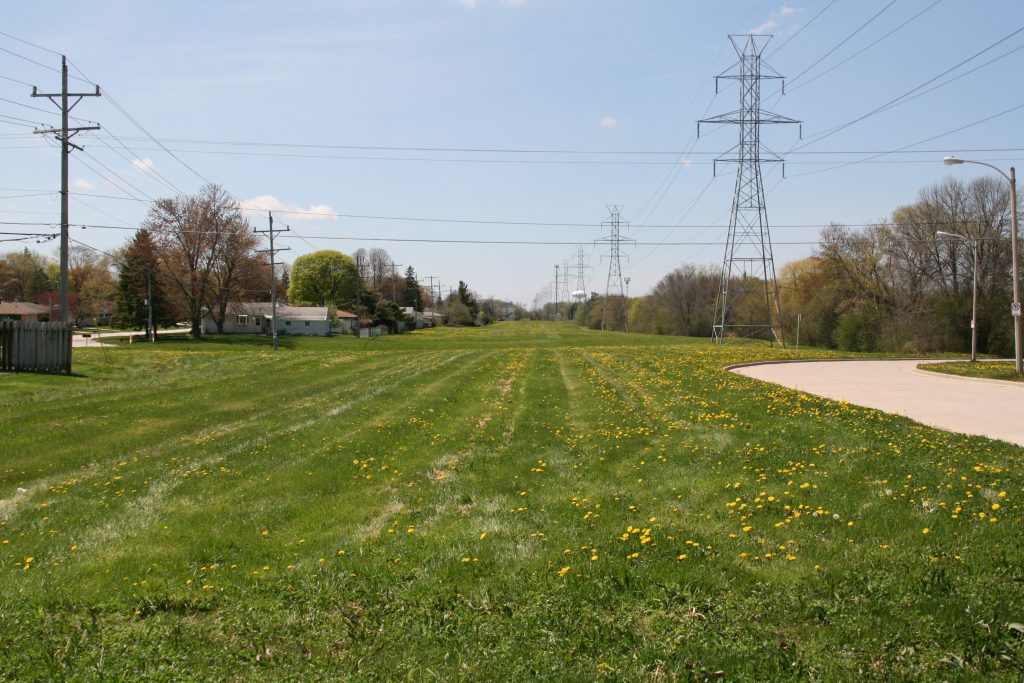Bill Blocks Competition on Transmission Lines
Does bipartisan proposal insure access to reliable power or favor established state utilities?
A bipartisan bill introduced in late January by Wisconsin lawmakers would block competition for development of new transmission lines. The bill comes as federal energy regulators are considering policy reforms that would update existing infrastructure and accelerate the transition to clean energy.
“By passing this bill, we would similarly be protecting Wisconsin’s access to reliable power by ensuring that the expansion of our state’s electric grid would be overseen by Wisconsin rather than the federal government or other states that don’t have Wisconsin’s best interests in mind,” bill author Rep. Tyler Vorpagel, R-Plymouth, said at a public hearing Thursday during an Assembly Committee on Energy and Utilities meeting.
A decade ago, federal energy regulators eliminated the right of first refusal for utility companies on transmission projects in their service area. The hope was that competition would drive innovation and development. But energy companies say it just bogged down the process.
Now, with unprecedented levels of federal funding for energy infrastructure on the horizon, Wisconsin lawmakers want to give incumbent transmission utilities — American Transmission Company, Xcel Energy and Dairyland Power Cooperative — exclusive rights to new transmission projects in the state.
The move comes as MISO finalizes plans to award transmission projects to facilitate the clean energy transition, which will cost at least $30 billion. Those costs would be passed on to electric ratepayers throughout the region.
In the public hearing, opponents of the bill said it would perpetuate monopolies in the energy industry.
“The term being used right now is right of first refusal, but it sounds just like refusal,” Rep. Deb Andraca, D-Whitefish Bay, said.
Todd Stuart is the executive director of Wisconsin Industrial Energy Group, which represents some of the state’s largest energy users. He said the new bill simply prevents qualified companies from bidding on projects, which ultimately impacts consumers.
But proponents of the bill said maintaining state control of utilities ensures reliability.
“I understand the impact of unreasonably high rates or an unreliable grid has on Wisconsin’s customers. But this legislation isn’t about your rates, it’s about reliability,” said Ellen Nowak, a commissioner with Wisconsin’s Public Service Commission (PSC), which regulates utilities in the state. “What this bill does is protect Wisconsin’s ability to have a say in who owns and maintains critical infrastructure in our state.”
While Nowak said she was not speaking on behalf of the commission, she praised the state’s rigorous oversight process that she said has produced reliable energy for decades.
“Replacing our process with a slow, cumbersome bureaucratic process, run by the federal government, or an arm of the federal government, is not in the best interest of Wisconsin,” Nowak said.
MISO operates the interconnected power grid for 15 Midwestern states. Seven of them — Indiana, Iowa, North Dakota, South Dakota, Minnesota, Michigan and Texas — have already passed similar legislation, unanimously in most cases.
“These are complex systems that have to complement each other and work well together to have a reliable grid,” said Karl Hoesly, regional vice president of rates and regulatory affairs for Xcel Energy. “That’s at the core of why we’re supportive of this bill.”
And with the “once-in-a-lifetime” federal infrastructure funding on the way, Dairyland Power Cooperative’s government relations manager Jennifer Shilling said there is incentive to prioritize local business.
“These are good-paying jobs that the men and women will be building these out and so I think it’s important to remember that we want to continue to keep that investment within our state,” Shilling said.
Last month the federal Department of Energy announced a plan for substantial federal investment to modernize the national power grid. The development of long-distance, high voltage transmission facilities are a critical part of President Joe Biden’s broader goal to achieve 100 percent clean electricity by 2035 and a zero emissions economy by 2050.
Speaking in support of the bill, Bill Marsan, general counsel for American Transmission Company, touted the accomplishments of ATC, which has developed the majority of the state’s transmission facilities since it was created by the state Legislature in 1999. In the past decade, Marsan said, ATC has developed 26 PSC-approved transmission projects that were, on average, 12 percent below budget.
The bill also got support from former member of the Federal Energy Regulatory Commission Tony Clark, who criticized competitive bidding for transmission projects as a “slow and litigious process.”
And advocates at Thursday’s hearing said there is no need for this kind of federal oversight. When developing a new project in Wisconsin, utilities are already beholden to a number of governing processes and bodies, such as the PSC, to ensure competitive costs and hold utilities accountable to their budgets and timelines.
Still, many skeptics at Thursday’s hearing, including Rep. Lisa Subeck, D-Madison, questioned why incumbent utilities couldn’t just participate in an open bidding process and make the best bid.
Bill advocates argued that MISO balances cost and reliability when siting projects — their priority is to the grid as a whole and not necessarily to Wisconsin.
“The improvement is really going to come from the collaboration of the transmission owners in Wisconsin working together to plan, permit and site these major projects without the interference of a bidding process that adds time, cost and complexity without providing any benefit to customers,” said Hoesly.
Furthermore, supporters said a local process involves competitive bidding, as ATC, Xcel and Dairyland subcontract for materials and labor.
Lane Ruhland, speaking on behalf of Wisconsin Industrial Energy Group, scoffed at this as a superficial gesture.
“They like (competitive bidding) after they’ve already been approved for the project,” she said. “We agree, competitive bidding is good. We think it’s good at the first step as well.”
Listen to the WPR report here.
Editor’s note: WPR reporter Danielle Kaeding contributed to this story.
Bipartisan energy bill would block competition on new transmission lines was originally published by Wisconsin Public Radio.























Follow the money–
https://www.wisdc.org/index.php?option=com_wdcfinancedatabase&view=searchadvanced&active_search=1&ic_employer=american+transmission+co